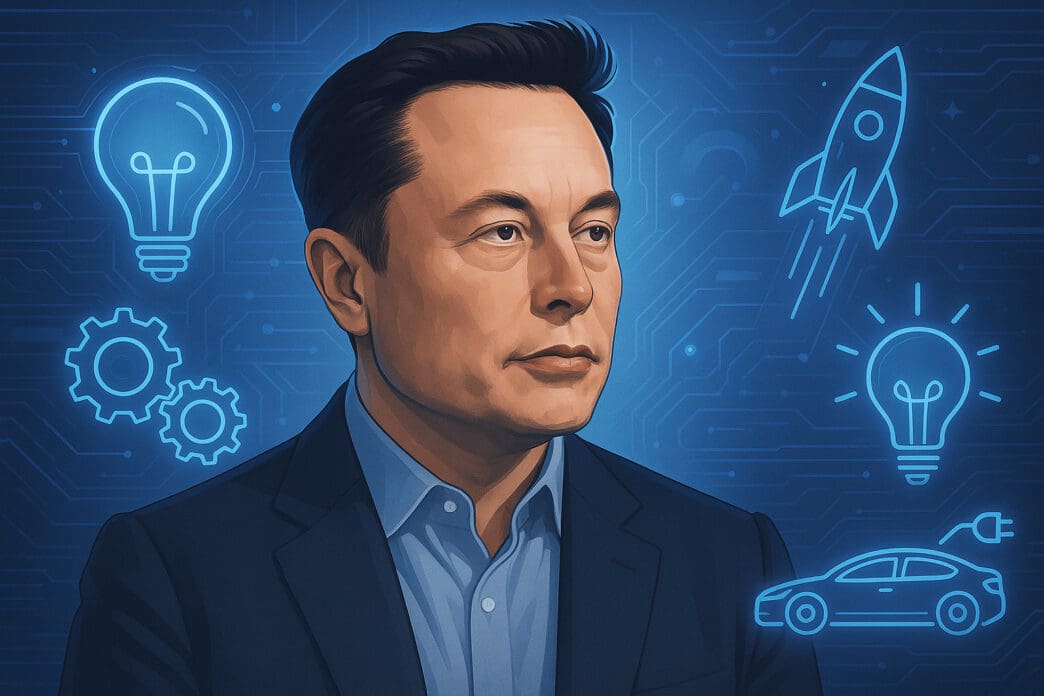Elon Musk, the billionaire CEO behind Tesla, SpaceX, and X, operates on a schedule so demanding and meticulously structured that it has become a modern legend in business circles. His typical day, often stretching from 7 AM to well past midnight, is a relentless exercise in maximizing every minute to advance his multi-planetary and sustainable energy ambitions. By strategically splitting his week between companies and breaking his day into five-minute increments, Musk juggles the immense responsibilities of several multi-billion dollar ventures, driven by a singular, overarching why: to solve what he sees as humanity’s most critical challenges.
The Dawn of a Hyper-Productive Day
For most, the morning is a gentle ramp into the day. For Elon Musk, it’s the immediate start of a sprint that rarely slows. His day typically begins around 7 AM, not with a leisurely breakfast, but with a dive straight into his most critical communications.
He dedicates the first 30 to 60 minutes to triaging emails, focusing only on those deemed essential to unblock his teams and move key projects forward. This habit ensures that by the time his employees in various time zones are fully engaged, they have the direction they need from the top.
An Unconventional Start
Musk famously skips breakfast. He has stated in interviews that his morning routine is often too compressed for a meal. If he does eat, it’s typically a quick coffee or an omelet consumed on the way to a meeting, a testament to his utilitarian view of time.
This “get-to-it” mentality sets the tone for the entire day. There is no wasted motion, no time allocated for activities that don’t directly contribute to his core objectives. It’s a philosophy of extreme prioritization that permeates every aspect of his schedule.
The “Time-Blocking” Philosophy
The cornerstone of Musk’s productivity is a technique known as time-blocking or timeboxing. He divides his entire day into five-minute slots and allocates tasks accordingly. This forces a high level of discipline and focus, preventing meetings from dragging on or tasks from expanding to fill unscheduled time.
This method allows him to context-switch rapidly between vastly different problems—from the aerodynamics of a Starship fin to the user interface of the X platform—without losing momentum. Each five-minute block has a purpose, creating a day-long chain of focused, intentional action.
Juggling Empires: A Split-Week Strategy
Managing one multi-billion dollar company is a monumental task. Musk runs several. To accomplish this, he employs a rigid weekly structure, dedicating specific days to specific companies to ensure each receives his focused attention.
This compartmentalization is crucial. It allows his mind to fully immerse in the complex engineering, production, and strategic challenges of one company before shifting to another. It’s a mental model that prevents the chaos of one venture from bleeding into the others.
Mondays & Tuesdays: The Tesla Focus
The beginning of the week is historically dedicated to Tesla. On Mondays and Tuesdays, Musk is typically immersed in the world of electric vehicles and sustainable energy. His focus is on engineering, design, and, most critically, manufacturing.
He is known for spending significant time on the factory floor, a practice that sets him apart from many CEOs. During critical periods, like the “production hell” of the Model 3 ramp-up, he famously slept at the factory, troubleshooting problems alongside his engineers in real-time. This hands-on approach gives him an unparalleled, granular understanding of the company’s operational realities.
Wednesdays & Thursdays: Reaching for the Stars with SpaceX
Mid-week, Musk’s attention pivots from Earth to Mars. Wednesdays and Thursdays are primarily for SpaceX, his aerospace manufacturing and space transport company. Here, his role as Chief Engineer comes to the forefront.
Meetings at SpaceX are intensely technical, focusing on rocket design, propulsion systems, and mission planning. His goal is not just to build rockets, but to fundamentally reduce the cost of access to space to make humanity a multi-planetary species. This long-term vision fuels the urgency and innovation that define the company’s culture.
The X Factor and Other Ventures
Since his acquisition of Twitter, now rebranded as X, Musk’s schedule has become even more compressed. Fridays, and often the weekend, are now a blend of work on X, The Boring Company (his tunneling venture), and Neuralink (his neurotechnology company).
The demands of X, in particular, have required a significant portion of his time, forcing him to be even more ruthless with his scheduling. This blending of days demonstrates his capacity to operate at a pace that would be unsustainable for almost anyone else, driven by the belief that each venture is critical to the future.
A Culture of Urgency and First Principles
Musk’s management style is as unique as his schedule. It is built on a foundation of extreme efficiency, direct communication, and a powerful problem-solving framework known as “first principles thinking.”
The Art of the Efficient Meeting
He holds a well-known disdain for unproductive meetings. To combat this, he has several strict rules. First, he insists on keeping meetings as small as possible. Second, he has famously told employees that if they find themselves in a meeting where they are not adding value, they should get up and leave. He sees it as more rude to stay and waste time than to depart.
Furthermore, he encourages direct communication across all levels, bypassing traditional corporate hierarchies. An engineer should be able to speak directly to a vice president without going through a manager if that is the fastest way to solve a problem.
First Principles Thinking
At the core of Musk’s innovation strategy is reasoning from first principles. Instead of reasoning by analogy (doing something because it’s how it has always been done), he breaks a problem down to its most fundamental, irreducible truths and reasons up from there.
A classic example is the cost of rockets. The established aerospace industry assumed rockets were expensive. Musk asked, “What are the raw material constituents of a rocket?” He discovered the cost of the materials was only about 2% of the total price. This realization led SpaceX to focus on reusability and in-house manufacturing to drastically cut the 98% of costs associated with traditional production, revolutionizing the industry.
Sustaining an 80-Hour Work Week
Operating at this intensity requires fuel and recovery, yet even here, Musk’s approach is one of pure pragmatism. His diet, exercise, and sleep habits are all geared toward one thing: sustaining his demanding work schedule.
He has admitted his work week often ranges from 80 to 100 hours, with some weeks during production crises reaching 120 hours. This pace is not a temporary sprint but his baseline operational tempo.
A Pragmatic Approach to Nutrition
Lunch is rarely a break. It’s often consumed in under five minutes during a meeting. He has expressed a fondness for French food and barbecue, and business lunches are a common way to multitask. His most consistent dietary habit is a well-documented consumption of Diet Coke.
His approach isn’t about optimizing for peak physical health in the way a professional athlete might, but about providing the necessary energy to power through long days of intense cognitive work with minimal interruption.
Finding Time for Fitness and Downtime
Despite his schedule, Musk makes time for exercise. He typically lifts weights a couple of times a week, viewing it as a critical component of maintaining his health. He has also engaged in martial arts, including taekwondo, Brazilian jiu-jitsu, and judo.
When it comes to sleep, he aims for around six hours a night, usually from 1 AM to 7 AM. He has acknowledged that sleeping less than that results in a net decrease in productivity, a hard-won lesson in self-management. His limited downtime is spent with his children, reading books—a lifelong habit that built his foundational knowledge in physics and engineering—and occasionally playing video games.
Lessons for Your Own Career
While adopting an 80-hour work week is neither feasible nor advisable for most, the principles underpinning Musk’s productivity offer powerful, actionable guidance for anyone seeking to achieve ambitious goals.
First, embrace time-blocking. You don’t need five-minute increments, but scheduling your day with clear, dedicated blocks for important tasks can dramatically increase focus and output. Second, question assumptions with first principles. In your own work, challenge the “way things have always been done” to find more innovative and efficient solutions. Finally, prioritize ruthlessly. Identify the few tasks that will generate the most impact and focus your energy there, learning to delegate or eliminate the rest.
Ultimately, a day in the life of Elon Musk is a lesson in extreme purpose. It is a schedule forged not just for productivity, but to serve a set of monumental goals. While the pace is extraordinary, the core message is universal: a clear and powerful “why” can unlock levels of focus and determination that can transform not only a career, but perhaps even the world.








